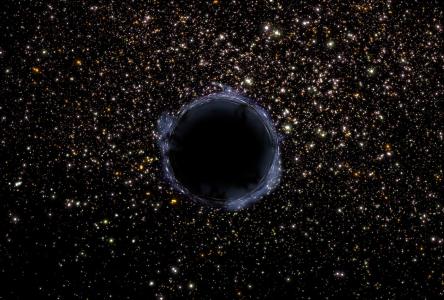Black Holes
This task is about reading an article and answering some questions.

BLACK HOLES
When a star that is relatively large (at least six or seven times the mass of our Sun), reaches the end of its life, its matter will collapse in on itself, making gravity in that region so intense that nothing, not even light, can escape. Everything around it, including nearby stars, is gradually sucked into the hole as if into a giant, black whirlpool in space. This is why we can never see a black hole. Light from it can never reach us. But astronomers can see the effect of a black hole. They can see the way its tremendous gravity bends light that reaches us from stars beyond it. And they can measure the incredible speed of matter whirling in the vortex, about to be sucked down into the hole itself. They have discovered that some, and perhaps all, galaxies have a black hole at their centre and that the stars of the galaxy are part of this whirlpool. What happens to objects that are sucked into a black hole? No one knows for sure. Some say they emerge into another, parallel universe. One thing seems certain – they never come back to the here and now!

